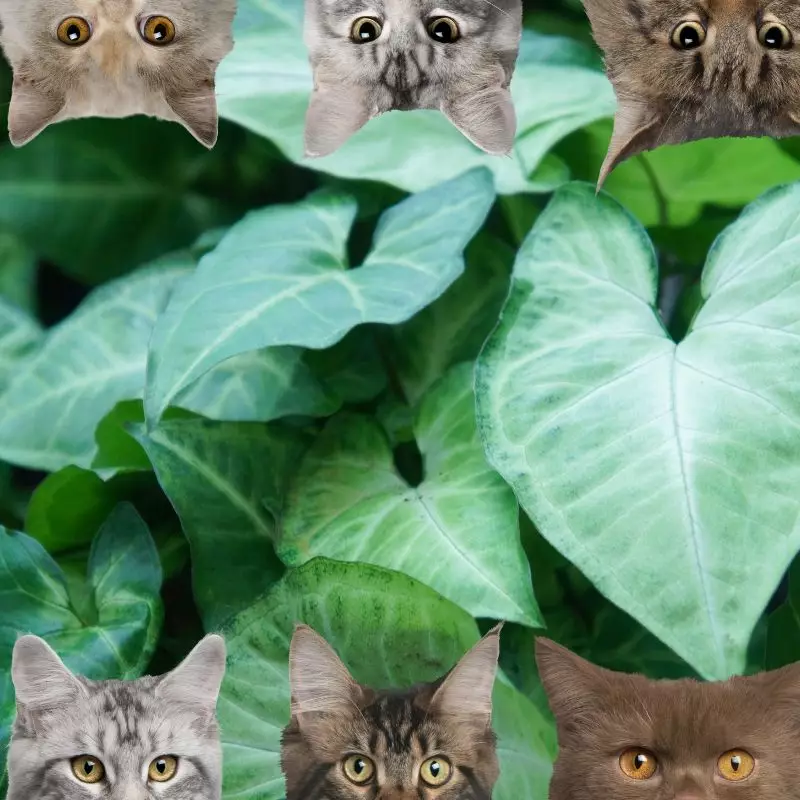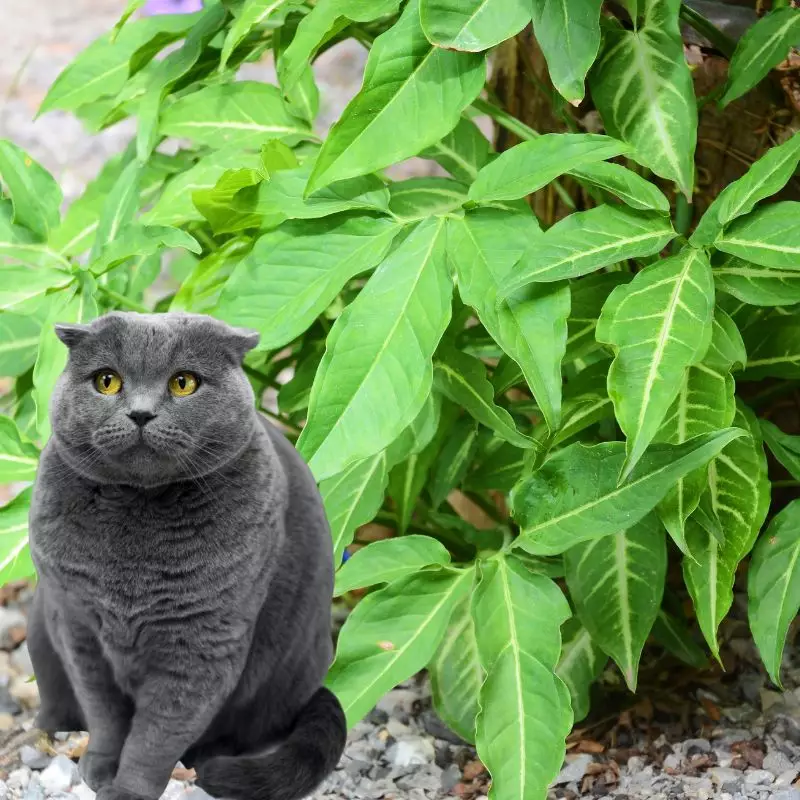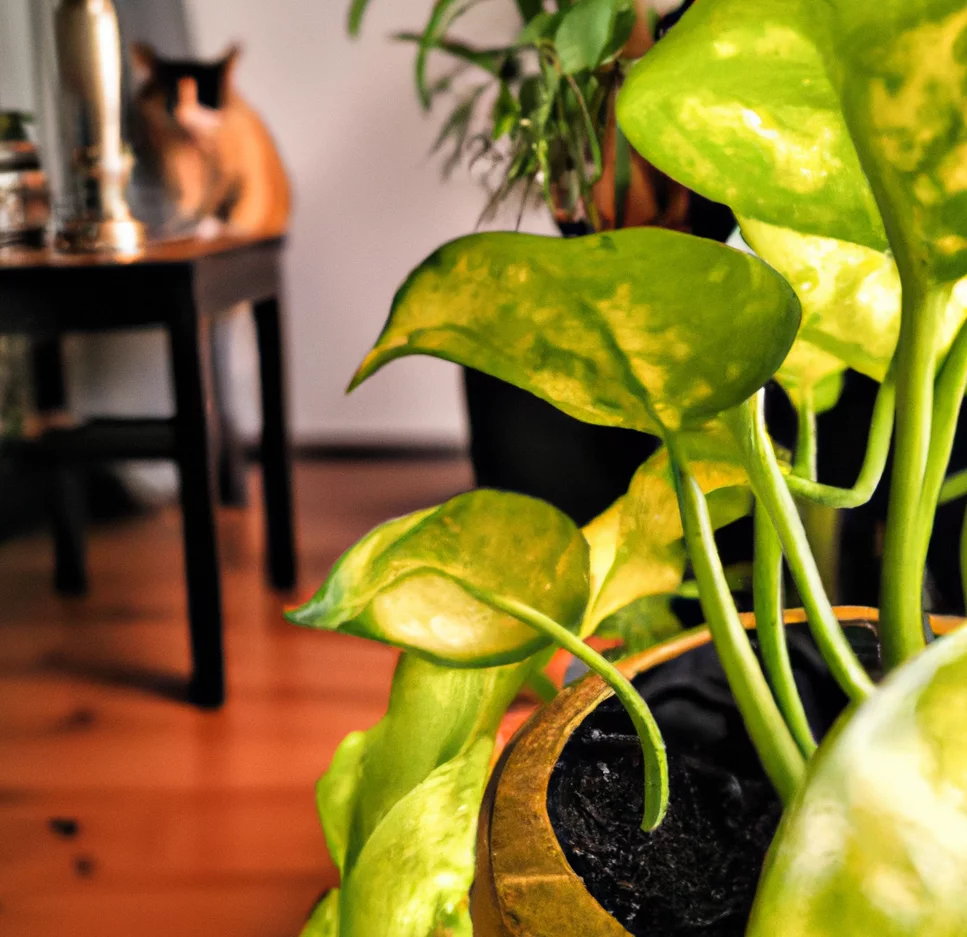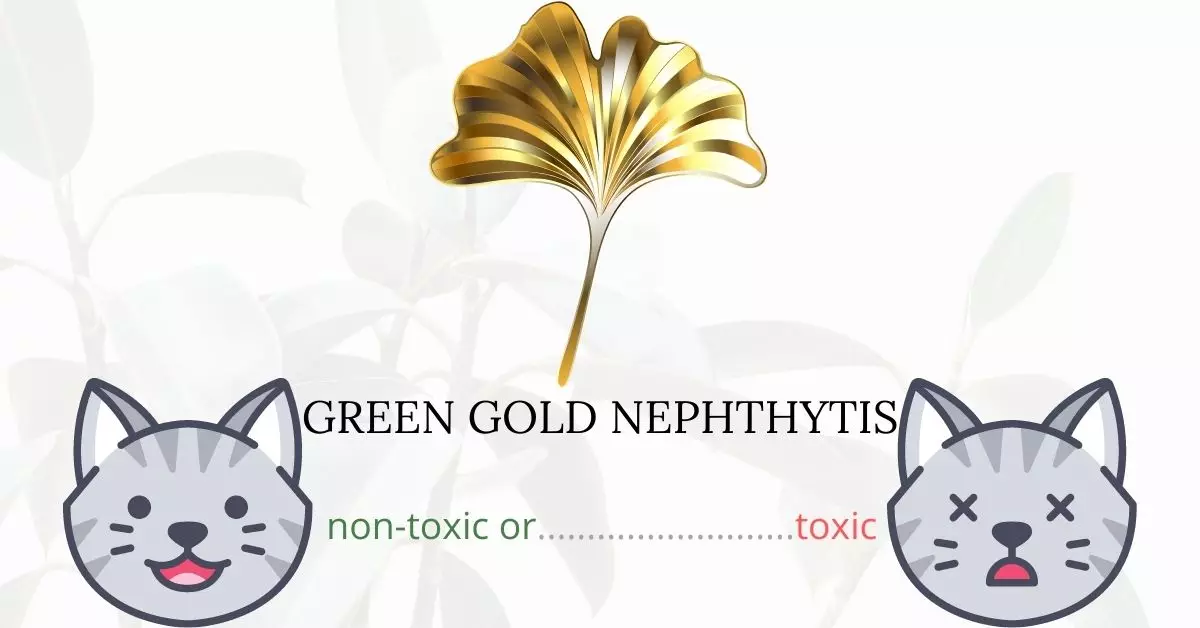Yes, Green Gold Nephthytis, often simply referred to as nephthytis, is toxic to cats when ingested. This popular indoor plant contains insoluble calcium oxalates which can cause oral irritation, drooling, and swelling, potentially leading to breathing difficulties for cats. Upon ingestion, these calcium oxalate crystals penetrate and adhere to the tissues of the cat’s mouth, tongue, throat, and stomach, causing immediate pain. If not addressed, these crystals may persist in the stomach and intestinal walls, leading to further gastrointestinal discomfort.
This article has been written in close collaboration with a team of experienced DVMs (doctors of veterinary medicine). Their invaluable insights and expertise have enriched our understanding of the potential risks associated with Green Gold Nephthytis and its effects on felines. Furthermore, our research is consistently backed by information from high-authority sources such as the ASPCA and PetMD, ensuring that we provide the most accurate and up-to-date advice for cat owners.
Clinical Signs of Green Gold Nephthytis Poisoning in Cats

Green Gold Nephthytis, if ingested by cats, can have severe consequences, including fatal outcomes. The plant contains insoluble calcium oxalates, which are the primary culprits behind the distressing symptoms seen in cats. The following are the clinical signs often observed after a cat comes into contact or consumes this plant, along with explanations for why each might occur:
- Oral Irritation: When a cat chews on the plant, the insoluble calcium oxalate crystals in the plant can penetrate the soft tissues of the mouth, causing immediate irritation.
- Hypersalivation (Drooling): This is a natural response to oral irritation. As the cat’s mouth senses the foreign crystals, it produces excessive saliva in an attempt to flush out the irritants.
- Choking and Swelling of the Throat: The crystals from the plant can stick to and irritate the throat tissues, leading to inflammation and potentially obstructing the airway.
- Inability or Difficulty Swallowing: Due to the swelling and irritation in the throat, the cat might find it hard to swallow food or even its saliva.
- Extreme Difficulty Breathing: If the swelling becomes severe, it can obstruct the airway, making it hard for the cat to breathe.
- Shallow, Rapid Breaths: As the airway gets constricted, the cat may take rapid but shallow breaths in an attempt to get more oxygen.
- Convulsions: The distress and potential lack of oxygen can lead to seizures or convulsions, as the nervous system becomes affected.
- Renal Failure: Extended exposure or repeated consumption of the plant might lead to renal complications, as the body struggles to process and eliminate the toxins.
- Coma: In severe cases, if the cat’s system is overwhelmed by the toxins, it might slip into a coma.
- Death: If not treated promptly, the accumulation of the aforementioned symptoms can sadly lead to the death of the cat.
It’s imperative for cat owners to be vigilant and act swiftly if they suspect their feline companion has ingested or come into contact with Green Gold Nephthytis. Symptoms often manifest within two hours of contact or ingestion, and immediate veterinary care is crucial.
First Aid and Treatment of Green Gold Nephthytis Poisoning in Cats

Immediate veterinarian care can save your cat’s life and avert life-threatening illnesses. The veterinarian may use medication to induce vomiting or administer an activated charcoal solution to help your cat get rid of the nephthytis toxin. In order to replace lost fluids and aid in the toxin’s removal, the veterinarian will most likely start him on IV fluids.
Recovery from Green Gold Nephthytis Poisoning in Cats

Because of the plant’s bitter taste, high amounts of nephthytis consumption are uncommon. However, if kidney or liver damage has already begun, it is possible that it will become a lifelong condition. Only immediate veterinary intervention can provide a favorable prognosis.
Prevention of Green Gold Nephthytis Poisoning in Cats
Remove your nephthytis at home or garden to avoid another poisoning episode. Keep your cat well-maintained and in good health by giving a balanced diet, keeping him or her physically active and mentally stimulated indoors. A well-fed and engaged cat is less likely to wander away and nibble on unknown plants in its surroundings.
If you love plants but have cats at home, check out these lists:





